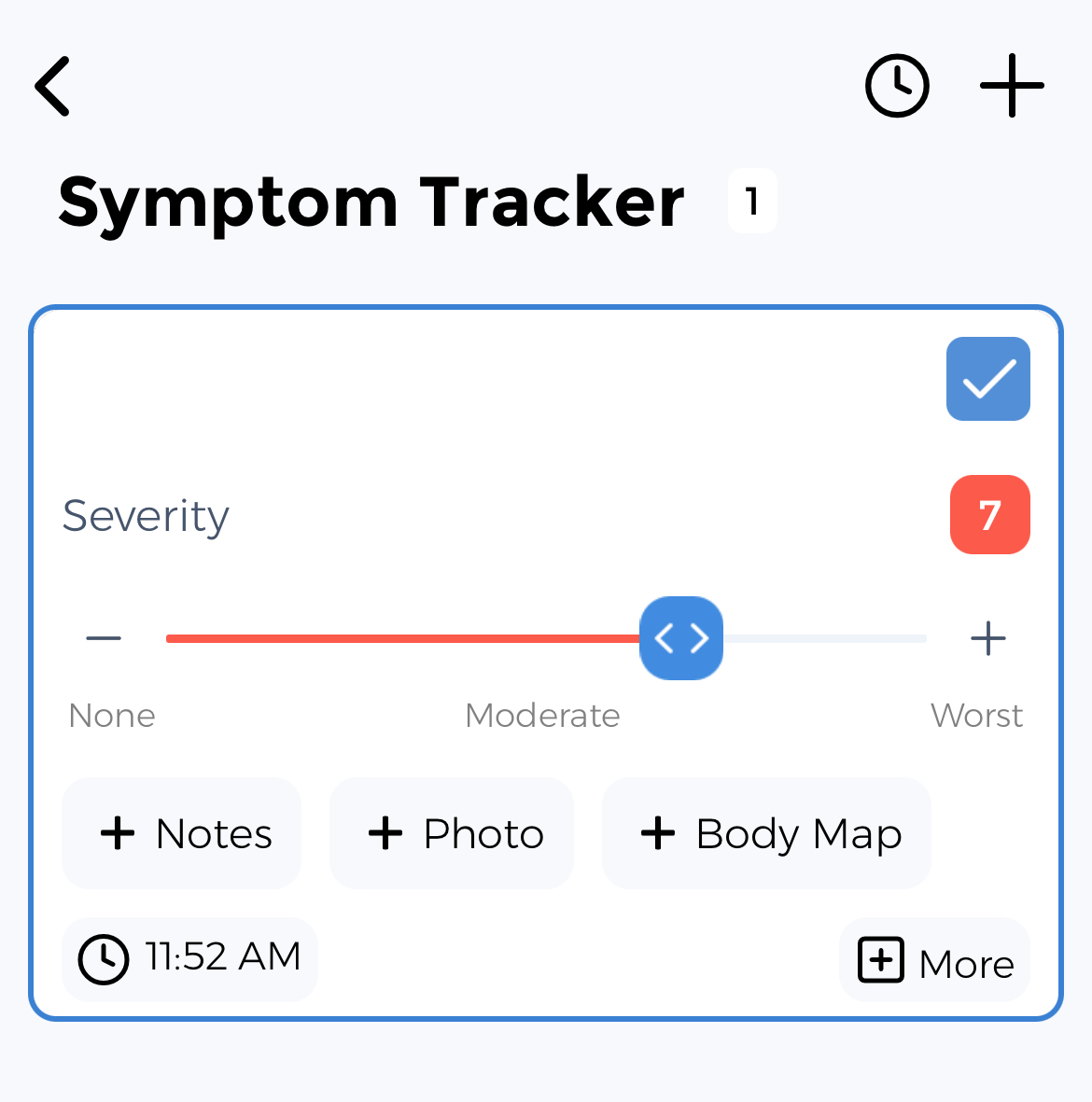Diabetic Nephropathy Symptom Tracker: Your Health Assistant
Living with Diabetic Nephropathy means dealing with foamy urine, edema in legs and feet, fatigue, and more. But here's the truth: Data is your most powerful tool. Every logged symptom reveals patterns—so you can take informed action.
Diabetic nephropathy is kidney damage that occurs in people with diabetes when high blood glucose damages blood vessels and filtering units in the kidneys. It progresses slowly, often without symptoms until advanced stages, eventually leading to kidney failure if untreated. Tracking blood sugar, blood pressure, and kidney function helps manage the condition and slow progression.
Key Diabetic Nephropathy Symptoms You Should Track
Struggling with symptoms like these? Tracking them reveals patterns, triggers, and how they impact your daily life.
Foamy urine
Edema in legs and feet
Fatigue
Decreased appetite
Nausea
Itchy skin
Difficulty concentrating
Shortness of breath
High blood pressure
Frequent urination
Protein in urine
Reduced glomerular filtration rate
Track Your Diabetic Nephropathy Treatments
Tracking how these common treatments affect your symptoms can help you and your healthcare provider optimize your care plan:
Our tracker helps you monitor when you take medications and how they affect your symptoms over time.
Standardized Diabetic Nephropathy Assessments
Complete these evidence-based assessments in the App to measure your severity and monitor your progress:
⚡ Knowledge Is Your Superpower
The difference between feeling overwhelmed by Diabetic Nephropathy and feeling in control starts with data. When you track your symptoms, you transform uncertainty into clarity. Every data point brings you closer to understanding your unique patterns.
It's free to try for anyone—whether you're managing your own condition, supporting a child, helping an aging parent, or assisting a partner. Our tracker adapts to your specific role in the health journey.
How the CareClinic Diabetic Nephropathy Symptom Tracker Adapts to Your Needs
Adults
Caregivers
Parents of Children
Young Adults
Your Complete Diabetic Nephropathy Management Toolkit
Uncover Patterns & Insights
Map your Diabetic Nephropathy symptoms like a detective solving a case.
Understand Your Medication's Impact
Turn guesswork into strategy. See how treatments affect your well-being with clear health insights.
Objectively Measure Your Progress
Use clinically validated tools to objectively measure your progress.
Other Tools You May Like...
Plus 4 more specialized tracking tools available
Access All Tracking ToolsAlso Supports Other Conditions Like
Diabetes Type 2 Tracker
Diabetes Type 2 warriors use our tracker to monitor increased thirst, frequent urination.
Hypertension Tracker
Hypertension warriors use our tracker to monitor headaches, shortness of breath.
Diabetic Retinopathy Tracker
Diabetic Retinopathy warriors use our tracker to monitor blurred vision, fluctuating vision.
Diabetic Neuropathy Tracker
Diabetic Neuropathy warriors use our tracker to monitor numbness in extremities, tingling sensation.
Success Stories from Our Community
"I was skeptical about tracking my Diabetic Nephropathy at first, but now I can't imagine managing without it. I've gained more good days than bad in ways I never thought possible."
"After years of frustration, this tracker finally helped me established a routine that minimizes symptoms. I can now communicate my symptoms precisely which has changed everything."
Take Control of Your Diabetic Nephropathy Journey
Transform from feeling like a passive patient to becoming an informed self-advocate. Join thousands who've discovered new insights about their condition.
Designed by people who understand the daily challenges of managing chronic conditions, we're here to support you and your ❤️ ones.
Download Your Diabetic Nephropathy Tracker NowYour Data is Protected
Private & Secure
HIPAA Compliant
GDPR Compliant
Never Sell Data
Your data is yours: You get full control over who can view your information. CareClinic keeps all your data secure and encrypted.
References based on studies by:

